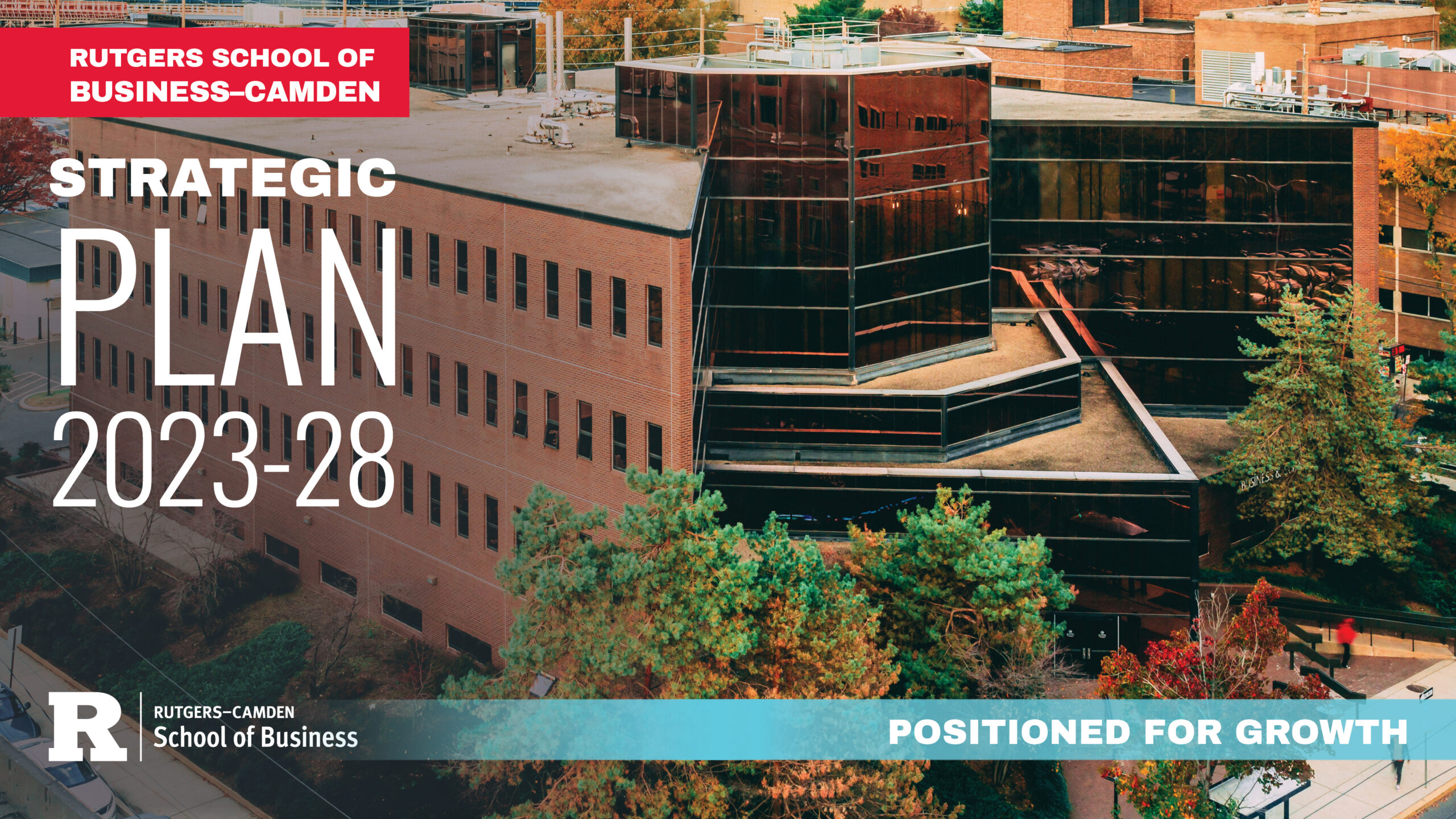Rutgers School of Business-Camden
Strategic Plan
Core Value Proposition
· Rutgers brand · Diverse, inclusive, and beloved community in an urban setting
· Internationally recognized faculty · Opportunity creation · Mentorship

Strategic Priorities
As a prominent business school, and one of two at Rutgers, The State University of New Jersey, Rutgers School of Business–Camden (RSBC) is poised to accelerate its growth as a national leader in public business school education and research. This national stature will continue to build on our core capabilities and our vision as a leading public business school that serves a catalyst for transformation.
1. Deliver societal impact through student transformation and research excellence.
1. Deliver societal impact through student transformation and research excellence.
Business schools at prominent public universities play a crucial role in leading the intellectual and economic transformation of our students, as well as of our corporate and community partners. Such transformation will rely on four principles:
- high-quality and industry-relevant curricula
- internationally recognized faculty scholarship
- innovative staff
- corporate and community partnerships supported by alumni and friends
2. Enhance RSBC's growth and reputation.
As a school that provides access to affordable business education, RSBC is fiscally constrained and must enhance resources to deliver successfully on its strategic goals. These resources will emerge from:
- growth in reputation as a leading public business school
- improved visibility of our faculty and their scholarship
- promotion of pathways for lifelong learners through a robust portfolio of traditional programs, certificates, and professional and executive education
3. Grow internal capabilities to deliver on strategic goals.
Within its resource constrained environment, RSBC must be efficient and innovative operationally and strategically. This requires an internal team that creatively delivers sustainable solutions. Successful delivery on this goal requires partnerships that can:
- create opportunities for faculty to engage with, and learn from, our constituents
- develop mechanisms for our staff to grow professionally and pay forward
- deliver the necessary infrastructure, including new facilities, to support our future


